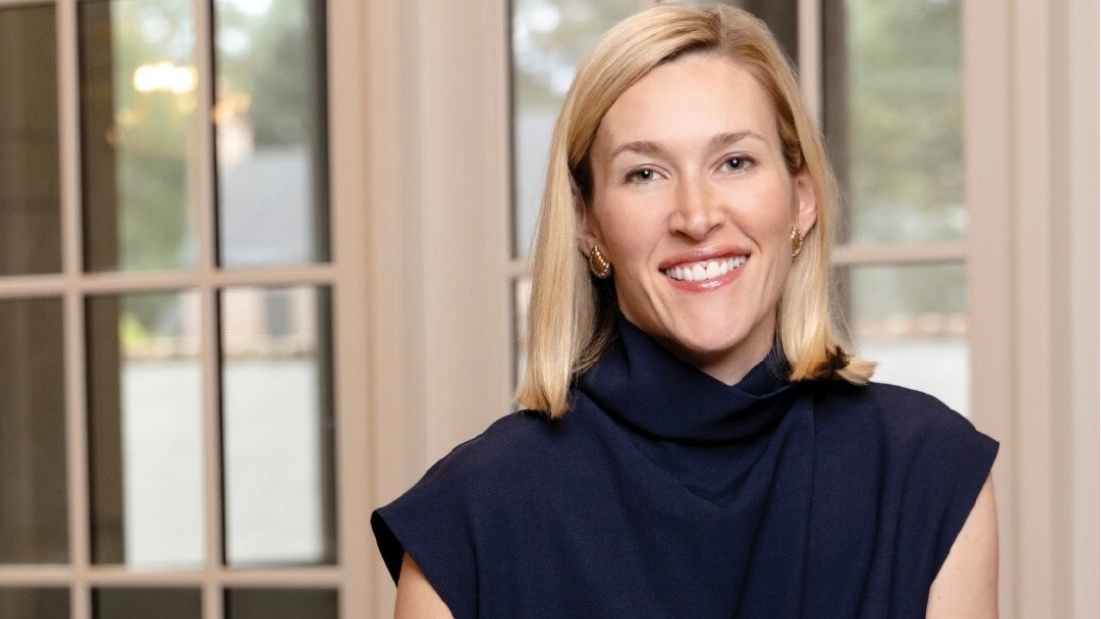

Appreciating the Sweetness of Life As a radiation oncologist, Dr. Olivia Claire Ball ’09 cherishes the humanity and connection she cultivates with her patients.
The daily, heavy reminders of cancer would turn the majority away from the field of radiation oncology, but Dr. Olivia Claire Ball ’09 views her profession as a front row seat to the beauty and resiliency of humanity. The recently named 40 Under 40 by Mobile Bay magazine sees it as a privilege and honor to form a relationship with each patient that comes through her office at The Cancer Center of Mobile, a division of Urology Associates in Alabama, as they work together toward remission.
“I genuinely enjoy it so much,” she says. “A lot of my patients do well, which is the best feeling in the world when you’re shepherding them through a really difficult time. Sometimes we’re treating patients for seven weeks, and we’re seeing them almost every single day. So, on the back end, when those patients do excellent, the bond that you have with them, even two or three years later, is so special. And even patients who do not do well, it’s still very valuable and sacred to provide care for someone who’s terminally ill.”
While the science itself intrigues her (Ball received the Ben Blackburn Award for scoring in the top 1% nationally on her medical physics exam after earning her medical degree from the University of Alabama at Birmingham), the ability to spend quality time with her patients and provide continuity care drew her to the field. She remembers her patients years afterward – like one older gentleman who was diagnosed with head and neck cancer. When she first started treating him, he wasn’t the warmest individual, but after his seven weeks of radiation, he shed his bristly exterior. Although he experienced rough side effects from the treatment, he still told her afterward that, “Life is so much sweeter now.”
“I’m just in such awe of my patients,” Ball says. “It just shows you how strong the human spirit can be.”
As a high school student, Ball gravitated to Washington and Lee University because of its tight-knit community.
“When I visited, it was so unique in the sense that it was smaller, and you actually felt like there was connection and community compared to some of the larger universities,” she says. “And I found that to be less overwhelming and more interesting — the idea of actually knowing most of the people in your class.”
And that sense of community that initially pulled her to W&L transformed into something more moving and impactful than she ever expected. In 2007, over Winter Break, her brother passed away. When she returned for the new term, different branches of the W&L network stepped in to help as she navigated such a huge loss.
“I didn’t take any time off from school because I was pre-med and worried about graduating on time,” she says. “But the people at W&L were really incredible; the grief counselor that I had and the biology teacher that I had, Jack Wielgus, were so good to me then.”
While her close friends checked in on her, people she didn’t know well also made sure she felt supported.
“I was blown away by how much some of my teachers showed up for me,” she said, “and some of the people that I wasn’t even really friends with but who were also pre-med were like, ‘Let me know how I can help you.’ Obviously, my close friends in my sorority checked up on me a lot, but that sense of community really did help me get through that time and keep going forward.”
Years after her brother’s death, Ball realized that her experience with grief and the caring community at Washington and Lee put her on the path to becoming a radiation oncologist, and she strives to provide that same compassion for her patients. Ball is skilled in several advanced radiation techniques and treats a breadth of malignancies including prostate, breast, head and neck, lung, bladder, skin, gastrointestinal and brain tumors as well as lymphoma.
“It probably wasn’t even 10 years after my brother’s death that I realized that when you go through something that traumatic, it kind of increases your humanity – or just makes you more human and makes you more comfortable being in difficult situations like that,” she says. “It wasn’t until after the fact that I realized I probably wouldn’t have been comfortable being an oncologist if I hadn’t gone through an experience like that. But I am grateful for that, because, aside from having children, being an oncologist is the greatest joy of my life because my patients are such awesome people and very inspiring to work with.”
